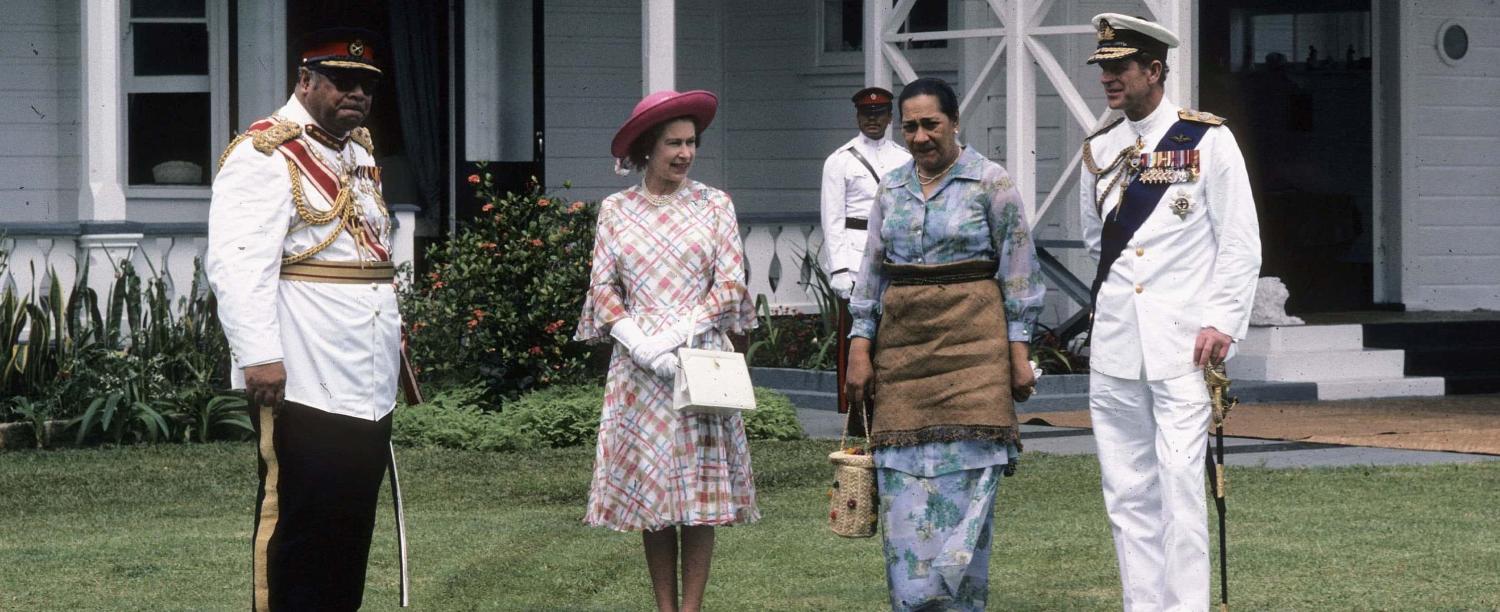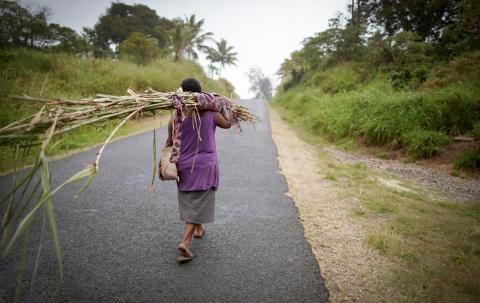Last week, the UK announced it was establishing diplomatic representation in nine countries: Lesotho, Swaziland, the Bahamas, Antigua and Barbuda, Grenada, St Vincent and the Grenadines, Samoa, Tonga and Vanuatu. From an Oceanian perspective, this might be a game changer.
There has been concern in capitals around the globe that the region is drifting towards China. Some analysts believe that politicians in Australia and New Zealand, the major Western nations tasked with “strategic management” in the region, have prioritised a narrow domestic economic agenda over regional prosperity and security, opening the door to Beijing in the process – often to the dismay of their defence and intelligence communities.
This opening up seemingly accelerated once the semi-autonomous New Zealand Aid was integrated into Ministry of Foreign Affairs and Trade (2009), and the Australian Agency for International Development came under the control of the Department of Foreign Affairs and Trade (2013). Some aid funding started to be more directly linked to economic advantage for New Zealand and Australia, as opposed to creating domestic security in the Pacific.
For example, large amounts of Australian and New Zealand aid have been earmarked for “harmonising” the legal systems of countries signed on to the PACER Plus free trade agreement, despite the fact that the deal is regionally divisive and seemingly of little value to Pacific nations, which already have quota- and tariff-free access to Australia and New Zealand markets via the South Pacific Regional Trade and Economic Co-operation Agreement.
PACER Plus is overtly designed to enshrine Australia’s and New Zealand’s economic primacy in the region. The New Zealand Government National Interest Analysis of the deal said it would “preserve New Zealand’s position against major competitors from outside of the region in the years to come”. One of these “competitors” is the UK.
That focus on trying to grab as much of the economic pie as possible, even if it makes the pie smaller, has hobbled regional economies and made them more open to Chinese engagement. That has resulted in the loss not only of political leverage for Canberra and Wellington (and by extension their strategic partners), but also, ultimately, of economic leverage as well. The policy hasn’t been working for anyone except China.
There were recent reports, denied by the parties concerned, that China was interested in a “naval base” in Vanuatu. A standard component of Chinese expansion has been an interest in ports. There is talk of a port development in Samoa, and a slipway in Tonga.
These projects are usually presented as commercial in nature, but there are concerns they could become dual-use (commercial and military). Additionally, given China’s penchant for exporting domestic corruption, there is the possibility they will become triple-use (commercial, military, and criminal), and function as conduits for drugs and human trafficking.
However, especially given the denials coming from Vanuatu, there are questions about how the naval base story was broken, and whether it would be used as a pretext for intervention. It would be good to have another set of friendly eyes analysing the situation.
Enter the UK. In the post-Brexit era, the UK will be looking to make itself more valuable to its various partners. One area in which it already has a very deep bench is intelligence and strategic analysis. Two of the diplomatic missions the UK is reopening, in Tonga and Vanuatu, were only closed in 2006. There are people in the Foreign and Commonwealth Office and other circles with strong knowledge of the region and good contacts.
The UK also had existing representation in Fiji, Solomon Islands, and Papua New Guinea. With six posts in the South Pacific, the UK will have better coverage in the region than the US (excluding its Freely Associated States), France, Germany, India, or just about anyone else except Australia, New Zealand, Japan, Taiwan, and China.
Within the region, the UK is seen as a benign, if not actively friendly, partner. Tongans, Samoans, and ni-Vanuatu can receive six-month visitor visas on arrival in the UK, unlike the costly and onerous process involved in visiting Australia or New Zealand. In the UK, the Tongan King has a higher diplomatic status than any Australian or New Zealand politician. The generational relationships between traditional leaders in the Pacific and royals and others in the UK offer a permanent backchannel built on long-standing trust.
Additionally, with the Commonwealth positioning itself as an environmental leader (especially under its new Head, Prince Charles), the UK is seen as a place that might take the concerns of small island states seriously, including leveraging its position as a P5 country, as it did when it brought climate change to the UN Security Council. London will also likely re-engage with direct bilateral aid, informed by in-country assessments, allowing it to be much more targeted and effective.
If Pacific leaders think they might actually be listened to, they are more likely to open up. All of which means the new UK posts might become extremely valuable strategically, and offer insight into issues such as the Vanuatu base.
The UK, not as blinded by a short-term economic agenda and with a global perspective, can bring a new layer of Oceania analysis to the Five Eyes. It looks keen to give France a run for its money as the go-to European voice in the Indo-Pacific. And it may also suddenly find itself with many more new voting island friends in the UN and elsewhere.
As for benefits to the region itself, if the UK helps bring a more comprehensive understanding of the dynamics of Oceania, it will give more space to those within the Australian and New Zealand strategic communities who are concerned by the way their countries’ policies have been destabilising the region.
By shifting the focus from small economic benefits for small sectors of the Australian and New Zealand business communities to regional prosperity and security on the islands’ own terms, everybody benefits. Except China.


